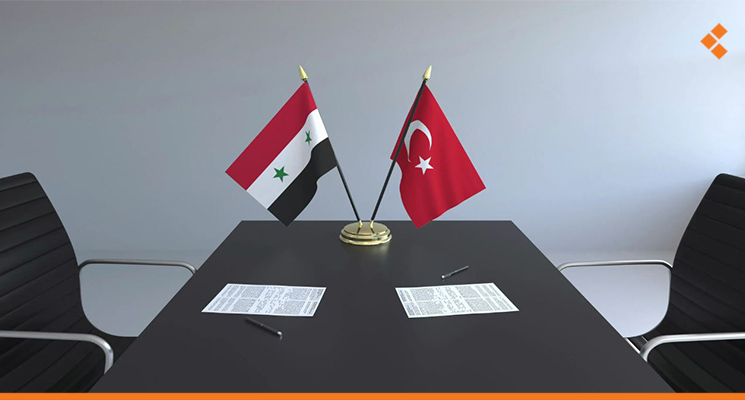Russian Deputy Foreign Minister Sergey Vershinin emphasized the ongoing communication between Syria and Turkey and underscored the significance of the Astana format in facilitating a lasting resolution in Syria.
O Thursday, the Russian diplomat stated that multiple meetings have taken place between Syria and Turkey at various levels, involving the ministries of foreign affairs and defence. These meetings have been conducted with the support of the Astana format, which has proven to be highly effective in fostering constructive dialogue. The Russian news agency TASS reported his remarks.
Vershinin confirmed that these vital contacts between the two countries will persist, and he praised their demonstrated effectiveness. Despite the exact dates and locations of the upcoming Astana track meetings not being determined yet, he asserted that they will continue to be instrumental in achieving a long-term settlement in Syria.
Moreover, the Russian Deputy Foreign Minister acknowledged the significant progress made through the Astana format and emphasized that the list of tasks to be addressed is continuously expanding. He also acknowledged Kazakhstan’s substantial efforts in coordinating these meetings and suggested that there is still potential for further contributions from Kazakhstan to continue the progress.
In conclusion, the ongoing dialogue between Syria and Turkey, facilitated by the Astana format, remains a crucial pathway to achieving a sustainable resolution in Syria, and both countries, along with Kazakhstan, are committed to ensuring its success.
Stalemate in the path of convergence
Amid the prevailing stalemate in Syrian-Turkish relations, Russian statements have gained significance, particularly after the recent quadripartite meeting in Astana, Kazakhstan, where deputy foreign ministers of Russia, Syria, Iran, and Turkey discussed a draft “road map” to normalize relations between the two countries on June 20 and 21.
In the past few days, Turkey has conveyed its rejection of Damascus’ demand for the withdrawal of Turkish forces from northern Syria. Turkish President Recep Tayyip Erdogan, during a press conference before his Gulf tour, emphatically stated that the withdrawal of Turkish forces from Syria, as demanded by Damascus, is not feasible due to the presence of “Kurdish units” near the Turkish border. Erdogan pointed out the constant threats to Turkey from this region and expressed the need for a fair approach to resolve the issue and other related matters. Despite this stance, Erdogan welcomed the idea of a meeting with Syrian President Bashar al-Assad.
Similarly, Fahrettin Altun, the Director of Communications in Turkey, conveyed Turkey’s eagerness to strengthen its relations with neighbouring countries. He highlighted that Turkey continues to participate in the quadripartite talks with Syria in good faith and without any preconditions.
Regarding the Syrian request for a complete withdrawal of Turkish forces from Syria, Altun argued that such a move “does not make sense now,” citing the continued presence of “Kurdish units” near the Syrian-Turkish border as a significant factor.
In conclusion, the recent quadripartite meeting and the statements from Russian, Turkish, and Syrian officials indicate the complexity of the Syrian-Turkish rapprochement, with issues like the withdrawal of Turkish forces and the Kurdish presence serving as major points of contention. Despite the challenges, all parties are engaged in dialogue to seek a viable solution and improve relations in the region.
Russian-Syrian talks
Just a few days following the conclusion of the quadripartite meeting in Astana, aimed at discussing Syrian-Turkish relations, Russian Deputy Foreign Minister Sergey Vershinin travelled to Damascus on June 26 for a crucial meeting with President Bashar al-Assad. During this meeting, they engaged in political talks concerning the relationship between Syria and Russia and their coordination efforts. Additionally, the two leaders addressed important matters such as combating terrorism and collaborating on the safe return of Syrian refugees to their homeland, as reported by the Syrian presidency.
Moreover, on a preceding day, President Assad held discussions with Alexander Lavrentyev, the Russian President’s Special Envoy to Syria, and his accompanying delegation. The talks primarily revolved around the critical issue of facilitating the return of Syrian refugees and also touched upon the challenges posed by Turkish obstinacy regarding withdrawal from Syrian territory.
In an interview with Al-Arabiya Net, Lavrentyev acknowledged that there are specific difficulties in normalizing relations between Damascus and Ankara, particularly pertaining to the Turkish military presence in Syrian territory. Despite these challenges, he expressed optimism about Moscow’s mediation efforts between its ally Syria and its partner Turkey. Lavrentyev affirmed that the normalization process continues to progress steadily on a monthly basis, indicating ongoing commitment and dedication from all parties involved.
In summary, the recent diplomatic engagements between Russian officials and the Syrian leadership underscore the importance of finding resolutions to pressing issues, such as the return of Syrian refugees and addressing Turkish concerns regarding withdrawal from Syrian territory. The ongoing talks demonstrate the commitment to fostering constructive dialogue and cooperation between all parties involved.
This article was translated and edited by The Syrian Observer. The Syrian Observer has not verified the content of this story. Responsibility for the information and views set out in this article lies entirely with the author.


